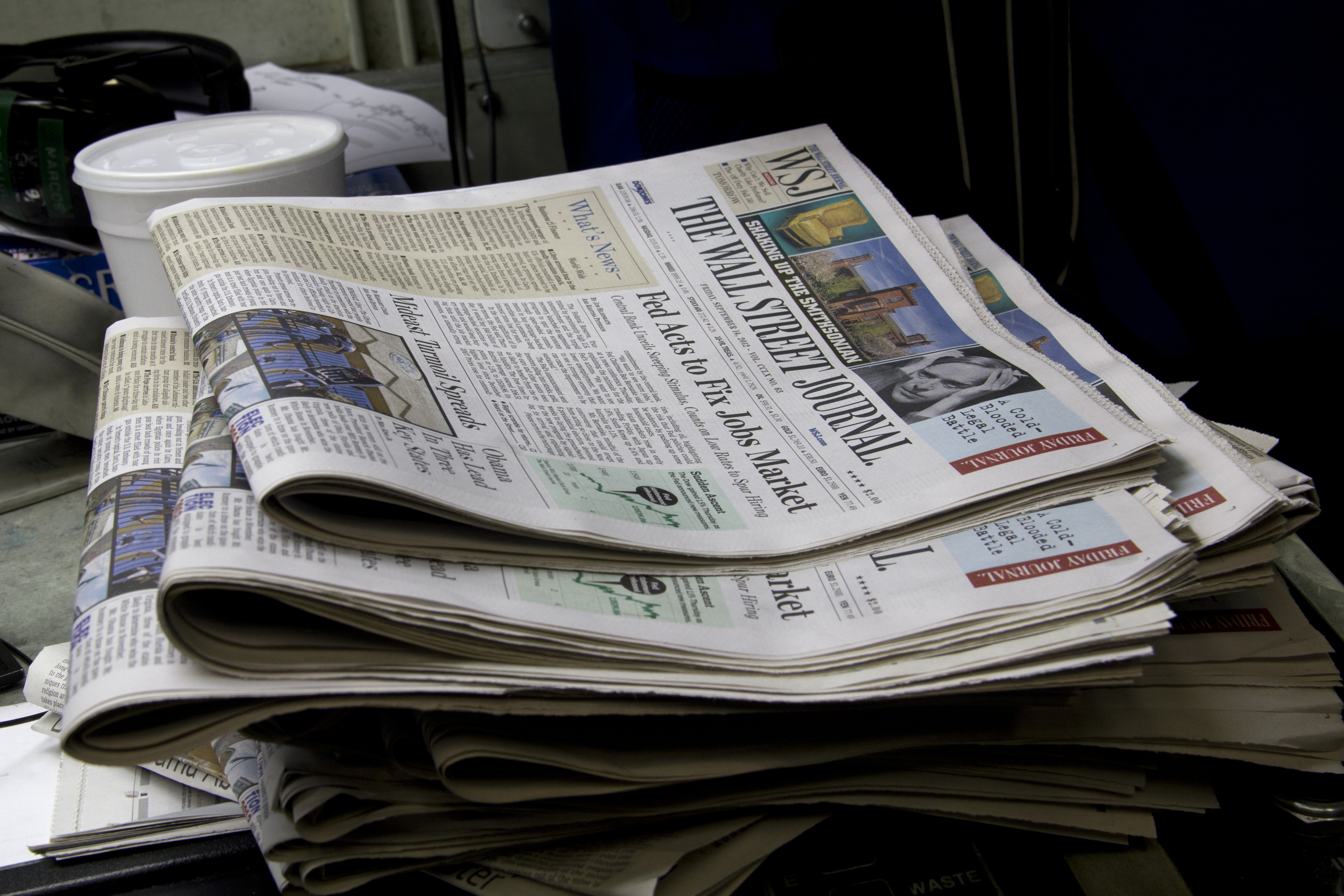

A New York antiquities dealer, Hicham Aboutaam, is suing the Wall Street Journal for suggesting he and his brother have sold items looted by ISIS.
The Journal‘s May 31 article, “Prominent Art Family Entangled in ISIS Antiquities-Looting Investigations,” reported that the Swiss, Belgian, French and U.S. authorities are “looking at” Aboutaam and his brother Ali Aboutaam “in connection with ISIS looting.” The Journal notes the brothers haven’t been charged with anything and their lawyer denies they “knowingly purchased or sold any looted items, let alone items looted by ISIS.”
The article has numerous anonymous sources, something that Aboutaam’s lawsuit flags. In some cases, there are two layers of apparent anonymity, like when “people familiar” tell the Journal about what “officials” are supposedly doing. iMediaEthics counted 18 possible anonymous sources, based on plural descriptions, if sources aren’t repeated. iMediaEthcs has asked the Journal how many anonymous sources it used, for more information about specific organizations with which anonymous sources are affiliated, and if it typically allows anonymous sources.
iMediaEthics has made a list of the sources for claims about the Aboutaams; almost all are anonymous. U.S. Immigration and Customs Enforcement is the only agency cited by name in terms of the current alleged investigations; iMediaEthics has contacted ICE to see if it will confirm any investigation.
“People familiar” and “officials”
- “People familiar with the matter” told the Journal that “Swiss law-enforcement officials” stopped a car of a man “who hasn’t been identified publicly or charged” but who “works for” Ali Aboutaam
- “People familiar with the probe” told the Journal the man had brought antiquities to the U.S. in hand luggage and met “a person working with the Aboutaams”
- “Officials in these countries” tell the Journal that “law enforcement in Belgium and security services in France are also looking at the brothers in connection with the ISIS looting”
- “People familiar with the matter” told the Journal that U.S. Immigration and Customs Enforcement is “scrutinizing the Aboutaam brothers”
- “Security officials say” ISIS is making money illegally trading antique items
- “People familiar with the matter” told the Journal that “authorities in Switzerland” had been watching the Aboutaam family
- “officials say” that “French authorities” are looking into the Aboutaams’ deals
- “two people familiar with the probes” said that “French security officials” are investigating them and other dealers
- “a Belgian official”
- “a person who knows the family”
Spokespeople:
- “A spokesperson for the Geneva free ports”
- “The spokesman of the Brussels Antiques & Fine Art Fair”
- “The Getty Museum”
Court records, websites or news releases:
- The ICE website
- “written statements by Bulgarian authorities”
- “A document seen by the Journal“
- The Justice Department’s Dec. 2016 civil complaint “seeking the forfeiture of objects associated with ISIS”
- Arts Economics
- “court records”
- a news release from the Aboutaam’s company
Named sources:
- Domenic DiGiovanni about smuggling objects into the U.S., but not specifically about the Aboutaams or the allegations about them.
- The Aboutaams’ lawyer, Jeremey H. Temkin
- An e-mail from Ali Aboutaam
No comments:
- “Egypt’s antiquities authority”
- The Metropolitan Museum of Art in New York
The Wall Street Journal‘s spokesperson Steve Severinghaus told iMediaEthics by e-mail, “The Wall Street Journal‘s article about investigations into the trafficking of material looted by ISIS was thoroughly reported, fair and wholly accurate. We fully stand by the article and will mount a robust defense to Hicham Aboutaam’s lawsuit.” iMediaEthics has written to Aboutaam’s lawyer for more information.
Courthouse News Service uploaded a copy of the lawsuit, which was filed in New York. In the lawsuit, Aboutaam repeats his denial of buying or selling any looted items, and he accuses the Journal of “ignoring months of assiduous attempts to guide and correct [Wall Street Journal] reporters’ misconceptions, misunderstandings, and incorrect assumptions.”
Further, Aboutaam’s lawsuit says he told the Journal he didn’t know of any investigation into his dealing, and notes that “not a single piece of information about any such investigation was attributed to an identified source or document” or came in “a direct quotation from any law enforcement official or anyone else.” The lawsuit quotes from the Society of Professional Journalists’ ethics code, the NPR ethics handbook and NYU’s Journalism Handbook about the use of anonymous sources.
“All of the allegations about ongoing investigations into connections between Plaintiff and ISIS looting are anonymously sourced or unattributed,” the lawsuit states. “The article does not even attempt to explain why anonymous sources were used or provide any context for the lack of attribution.”
The lawsuit also flags the Journal‘s print edition display of the article and images, arguing that the pairing of a large photo of Syrian ruins with a photo of the Aboutaam brothers suggests they were involved with the destruction in Syria.
The lawsuit says that the Journal article caused Aboutaam to lose funding, business relationships and business opportunities.
Hicham Aboutaam’s Geneva-based brother, Ali, isn’t suing over the article because his business hasn’t been as affected, the New York Times noted.
